★★★
“Better the devil Kenau…”
 This feels a little like a Dutch cross between the stories of Joan of Arc and William Wallace. It’s a couple of centuries later than either, taking place (as the non-Dutch title states!) in the 16th century. The Spanish armies of the Catholic King Philip II were sweeping across Europe, reaching as far North as the Netherlands. Some cities capitulated; others resisted. Among the latter was Haarlem (to use the Dutch spelling), where legend states a woman called Kenau Simonsdochter Hasselaer led an army of 300 women in defense of the city. The more prosaic reality is that she may have helped in fortifying the defense, though the amount of reliable historical data about her is scant in the extreme.
This feels a little like a Dutch cross between the stories of Joan of Arc and William Wallace. It’s a couple of centuries later than either, taking place (as the non-Dutch title states!) in the 16th century. The Spanish armies of the Catholic King Philip II were sweeping across Europe, reaching as far North as the Netherlands. Some cities capitulated; others resisted. Among the latter was Haarlem (to use the Dutch spelling), where legend states a woman called Kenau Simonsdochter Hasselaer led an army of 300 women in defense of the city. The more prosaic reality is that she may have helped in fortifying the defense, though the amount of reliable historical data about her is scant in the extreme.
When has that ever stopped film-maker – hence the Wallace comparisons, who is similarly lost in the mists of time. The Joan of Arc similarities are in the heroic defense of her homeland against foreign invaders, though there’s less of a religious subtext for Kenau. In this version, one of her daughters, Gertrude (Smit) is burned at the stake after being caught vandalizing a Catholic church, and it’s partly this which triggers Kenau into action: I guess that’s a little like Boudicea as well. Initially, she is reluctant to take action, and the city is almost sold out to the Spanish by its corrupt leader. However, it’s all almost too convenient in the subsequent events, which portray Kenau as a brilliant strategist, always one step ahead of the enemy.
To a certain extent, this is fair enough: it’s a heroic story, painted in bold strokes, without much subtlety. The Spaniards, especially, come over as borderline caricatures, all lecherous villainy. About Kenau’s sole weakness is being over-protective of her other daughter, Kathelijne (Harmsen), refusing to let her become her own person, romance a hunky mercenary soldier, or assist in some of the more dangerous missions, such as sneaking out of the city to hijack a supply convoy. Otherwise, there’s precious little resistance, with the wonderfully-named governor, Wigbolt Ripperda (Atsma), putting up only a token argument against Kenau running things. There are likely one too many heroic cliches, such as the rousing speech she gives, when the women have a chance to leave the besieged city.
If questionable from a historical perspective, I still have to admit I was entertained to a fine degree, with the production values being better than I expected – Hungary stood in for the Netherlands during shooting. There is no shortage of action, either on the battlefield, or in the shape of other incidents. Even as someone who knows almost nothing about the history of this period, it’s all rather rousing. Hendricks delivers a sufficiently committed performance, and this helps paper over some of the points where her character feels like it came from about 400 years later in history. Not a movie you want to think about too much, I suspect – especially since the truth is that Haarlem ended up surrendering, with thousands of its residents beheaded or drowned. Awkward.
Dir: Maarten Treurniet
Star: Monic Hendrickx, Sallie Harmsen, Barry Atsma, Lisa Smit
a.k.a. Kenau





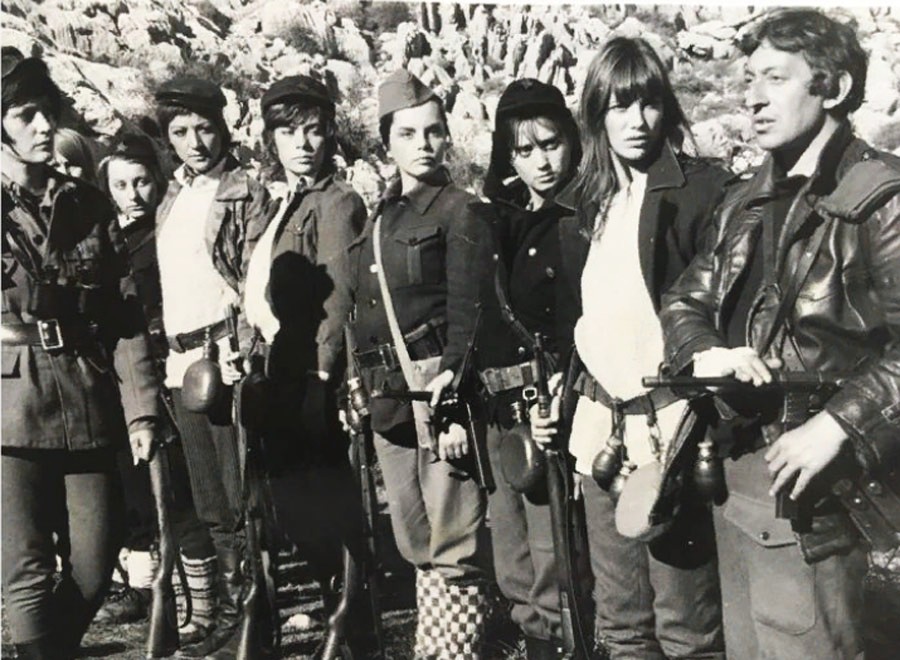 ★★
★★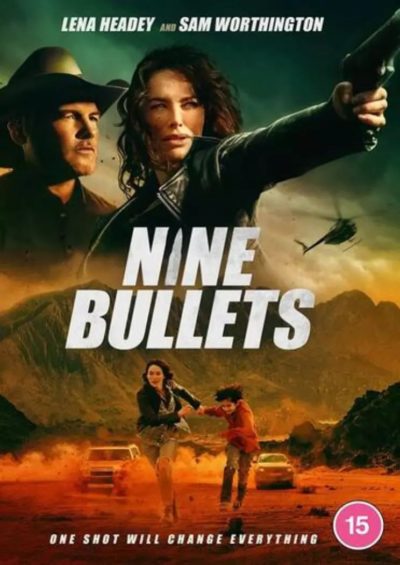 While this is not an “official” remake of Gloria, it’s so damn close that I have no problem considering it as one. Writer/director Gaston seems to have… um, a bit of a track record in this area, shall we say. She previously appeared here by directing
While this is not an “official” remake of Gloria, it’s so damn close that I have no problem considering it as one. Writer/director Gaston seems to have… um, a bit of a track record in this area, shall we say. She previously appeared here by directing 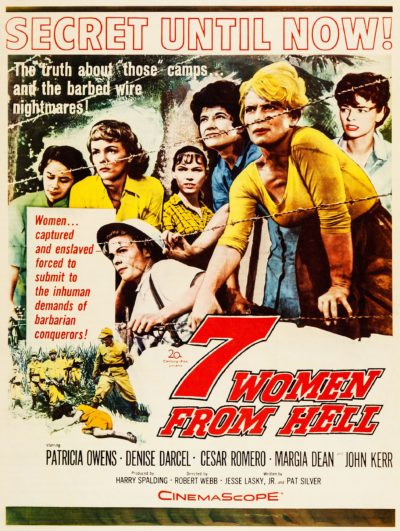 About the only review online I found for this, said it “may be the worst movie released in 1961.” I can only presume the writer of that statement has never seen The Beast of Yucca Flats. Even if I admit its weaknesses, Seven is nowhere near the same league of badness. Indeed, it starts off well, depicting the sudden invasion of Papua New Guinea by Japanese forces in 1942, with “enemy” civilians being herded into interment camps. The ones on the women’s side are a multi-national bunch, including Australian Grace Ingram (Owens), several Americans including Janet Cook (Craig), a German widow Ann Van Laer (Sylvia Daneel), Frenchwoman Claire Oudry (Darcel), and mixed-race nurse Mai-Lu Ferguson (Pilar Seurat).
About the only review online I found for this, said it “may be the worst movie released in 1961.” I can only presume the writer of that statement has never seen The Beast of Yucca Flats. Even if I admit its weaknesses, Seven is nowhere near the same league of badness. Indeed, it starts off well, depicting the sudden invasion of Papua New Guinea by Japanese forces in 1942, with “enemy” civilians being herded into interment camps. The ones on the women’s side are a multi-national bunch, including Australian Grace Ingram (Owens), several Americans including Janet Cook (Craig), a German widow Ann Van Laer (Sylvia Daneel), Frenchwoman Claire Oudry (Darcel), and mixed-race nurse Mai-Lu Ferguson (Pilar Seurat).  I went into this preparing to hate it. There had been red flags all over the place, such as star and producer Chastain coming out with comments about her movie like, “It’s very important for society. We’ve moved against the status quo, and we’re creating our own narrative for it. The film is, in some sense, a political act.” Uh-oh. No film is
I went into this preparing to hate it. There had been red flags all over the place, such as star and producer Chastain coming out with comments about her movie like, “It’s very important for society. We’ve moved against the status quo, and we’re creating our own narrative for it. The film is, in some sense, a political act.” Uh-oh. No film is  Oh, dear. There’s part of me which thinks this is what you get when you try and make actors out of pool players. For the star here, Barretta, is one of the top women cue artists in the world. She’s joined here by cameos from a couple of bigger pool stars i.e. people even I’ve heard of, in Jeanette ‘The Black Widow’ Lee and Allison Fisher, and you can’t really expect much out of any professional sportswomen, in terms of acting ability. However, she isn’t that bad, though this may just be relative to some of her fellow cast members. And, to be fair to the actors here, you could be an Oscar-winner, and still not be able to do anything with the wretched script, which is little more than a parade of cliches, when not being a shameless advert for the American Poolplayers Association and its leagues.
Oh, dear. There’s part of me which thinks this is what you get when you try and make actors out of pool players. For the star here, Barretta, is one of the top women cue artists in the world. She’s joined here by cameos from a couple of bigger pool stars i.e. people even I’ve heard of, in Jeanette ‘The Black Widow’ Lee and Allison Fisher, and you can’t really expect much out of any professional sportswomen, in terms of acting ability. However, she isn’t that bad, though this may just be relative to some of her fellow cast members. And, to be fair to the actors here, you could be an Oscar-winner, and still not be able to do anything with the wretched script, which is little more than a parade of cliches, when not being a shameless advert for the American Poolplayers Association and its leagues.

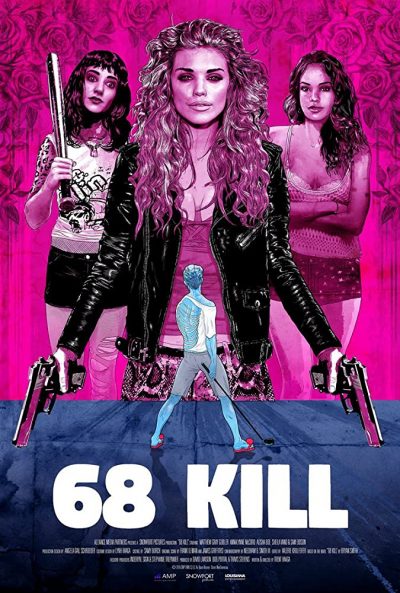 Is it possible for an action heroine film to still be chauvinist? While that criticism was frequently levelled at
Is it possible for an action heroine film to still be chauvinist? While that criticism was frequently levelled at 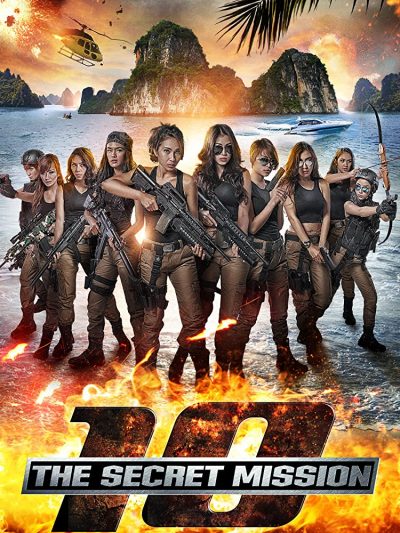 The daughter of the American ambassador is kidnapped, and is being held on an island off the Indonesian coast. Conventional attempts to stage a rescue mission end badly, and pressure from the US mounts on the government to do something. Colonel John (Thomas) is in charge, and comes up with a daring plan. Well, to be honest, the word “ludicrous” might be more appropriate, or perhaps that’s just me. He recruits ten models with a range of martial arts talents – silat, wushu, archery, etc. – and in five days, his tough-as-nails second in command, Major Cathy (Anderson) will lick them into a cohesive unit, which can infiltrate the island and mount a daring rescue. “Why do they have to be models?”, I hear you asking. Again, to be honest, this is never exactly explained. Still, for cinematic purposes, we’ll let it slide, since the intent is clear: it lets them kick ass, while looking good doing so.
The daughter of the American ambassador is kidnapped, and is being held on an island off the Indonesian coast. Conventional attempts to stage a rescue mission end badly, and pressure from the US mounts on the government to do something. Colonel John (Thomas) is in charge, and comes up with a daring plan. Well, to be honest, the word “ludicrous” might be more appropriate, or perhaps that’s just me. He recruits ten models with a range of martial arts talents – silat, wushu, archery, etc. – and in five days, his tough-as-nails second in command, Major Cathy (Anderson) will lick them into a cohesive unit, which can infiltrate the island and mount a daring rescue. “Why do they have to be models?”, I hear you asking. Again, to be honest, this is never exactly explained. Still, for cinematic purposes, we’ll let it slide, since the intent is clear: it lets them kick ass, while looking good doing so.